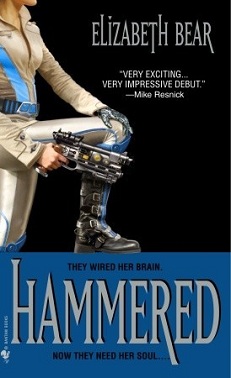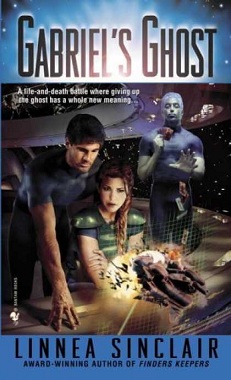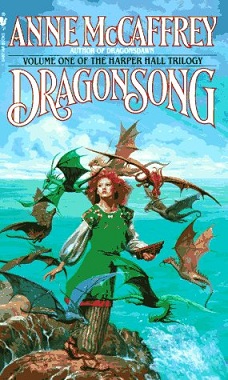
Hammered
Elizabeth Bear
324 pages
published in 2005
Elizabeth Bear is a newish science fiction writer who I’ve been aware off, but hadn’t read anything off until now. Hammered is her first novel, published in 2005 along with its two sequels, Scardown and Worldwired. It was well recieved, with Bear winning both the 2005 John W. Campbell Award for Best New Writer and the 2006 Locus Award for Best First Novel. Both are well deserved, as this is one of the better first novels I’ve ever read. Elizabeth Bear is in complete control throughout and it reads like the work of a much more experienced writer.
Hammered starts out in the most cyberpunk posssible way, with local gangster boss Razorface bringing a kid overdosing on an army combat drug called Hammer to Maker, Jenny Casey, a UN combat veteran of what wasn’t WWII, now left with a cyborg left arm and prosthetic left eye, to see if she can save him. Razorface has mouth full with “a triple row of stainless steel choppers”, hence his nickname, while Jenny has hers because she fixes things. Neither is fond of Hammer, a dangerous drug even when pure and the batch the kid o.d. on is anything but. Some corporation is leaking tainted drugs in their city (Hartford, Connecticut) and together they have to stop them. Meanwhile, an online multiplayer game in which the best players get a chance at piloting a virtual star ship is infiltrated by an AI, who suspects the game is more than just entertainment. It’s 2062, climate change and the wars resulting from it have wrecked the world, China and Canada are locked in a Cold War and somebody’s after Jenny Casey. It might even be her sister.

